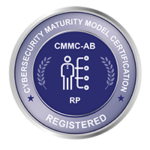This summer, most of us returned to life as normal since the pandemic began in 2020, meaning personal vacations and in-person work trips returned in full swing. In fact, TSA Checkpoints show that the number of daily airline travelers has reached similar numbers to pre-pandemic days. With the prevalence of work-from-anywhere, many individuals are fulfilling their job duties while jet-setting around the country or even the world. As a result, employees are logging into company devices, applications and programs, or accessing sensitive corporate data, often while connected to public Wi-Fi networks and plugging into public charging ports. While we may be pressed for time, this natural gravitation toward convenience can sometimes leave security considerations far in the background of decision making.
Traveling is meant to be enjoyed, not rife with security risks. So before you reserve that hotel or book that flight, take a look at the latest mobile threats targeting travelers:
Public Charging Stations
You’re scrolling through your phone as you wait for your flight to board, and that daunting notification pops up on your screen—low battery. You need your phone to help you pass the time on your flight, so you search for the nearest charging kiosk. Don’t worry, we’ve all done it. But did you know that these public charging stations could compromise your device’s data?
It turns out that cybercriminals can easily modify these charging stations to gain access to your phone or install malicious software– a process called “Juice Jacking.” Is this something travelers really need to be concerned about? Consider the amount of information on your device – your email, text messages with friends and family, social media accounts – even your banking apps. Juice jacking enables users to view your screen where they will “see” what apps you are accessing and what usernames and passwords you are entering – including your banking app credentials. Now, think about all the work you do on your devices. Are you logging into your company/government email, business applications, intranet sites, etc.? These days, who isn’t ? This means the “Juice Jackers” have access to all that information as well which puts the entire organization at risk. Think about it, every time you connect your mobile device to a piece of hardware in an airport via USB, you are connecting your device to hardware that is outside of your control, throwing the door wide open to your company/government agency creating a risk of data transfer or theft or much, much worse.
Public Wi-Fi Hotspots
Security experts have long advised people to avoid using public Wi-Fi networks because of the risks of being hacked. While open Wi-Fi networks that do not require a password or use encryption may be convenient when you’re in a pinch, they are also convenient for anyone looking to spy on your online activity. When connected to Wi-Fi, most users are sending data back and forth to others. Whether it’s a silly text message to your spouse or contract and financial details with your client, you are sending data that is subject to being easily intercepted by bad actors via the same public Wi-Fi you were counting on being safe. Cybercriminals can create phony Wi-Fi hotspots called “Evil Twin” hotspots to “spoof” users into connecting via their network while stealing their data in the process. For this reason, airport Wi-Fi networks are notoriously risky to join. While the ‘free’ Wi-Fi may be tempting, threat actors will go as far as to set up networks that mimic official airport network names, collecting the information of anyone that falls into their trap.
Take Precautions When Traveling
COVID-19 canceled our travel plans in 2020, so don’t let cybercriminals ruin the excitement of a journey this year. Your next trip shouldn’t be spent stressing over data breaches. And, it most certainly shouldn’t result in a cyberattack that can damage the reputation and financially impact your employer. Cybercriminals use advanced techniques that are designed to easily circumvent the common mobile security and management solutions most companies have in place using common MDM solutions. Mobile Device Management (MDM) is not a replacement for a robust mobile security solution – it is merely one component of a mobile strategy and one that – by definition – was only designed to help manage devices, not secure them. Conversely, by using the right tools, Employees can be empowered to do their work from wherever they are, at the office, at home or all the way across the globe while being protected from the security pitfalls described above.
Fortunately, there’s no need to cancel any of your travel plans going forward as all of these security-related concerns can be addressed by SyncDog’s Trusted Mobile Workspace — a Zero Trust mobile endpoint security solution that protects your data and your device no matter where you happen to be at the time, what network you are connected to or what device you are using. Compatible with Android, iOS, Mac and PC, with SyncDog it doesn’t matter if the device is corporate-owned or BYOD (Bring Your Own Device), managed or unmanaged, on line or off – you will be protected. It is easily deployed via the cloud or as an on-prem solution – or even a hybrid of both. Secure.Systems is the definition of a holistic mobile endpoint security system, leveraging Zero Trust containerization, modern device management, mobile threat defense, secure enterprise messaging and even a private app store, putting user experience first without sacrificing security and data trust. Learn more here and request a demo.
